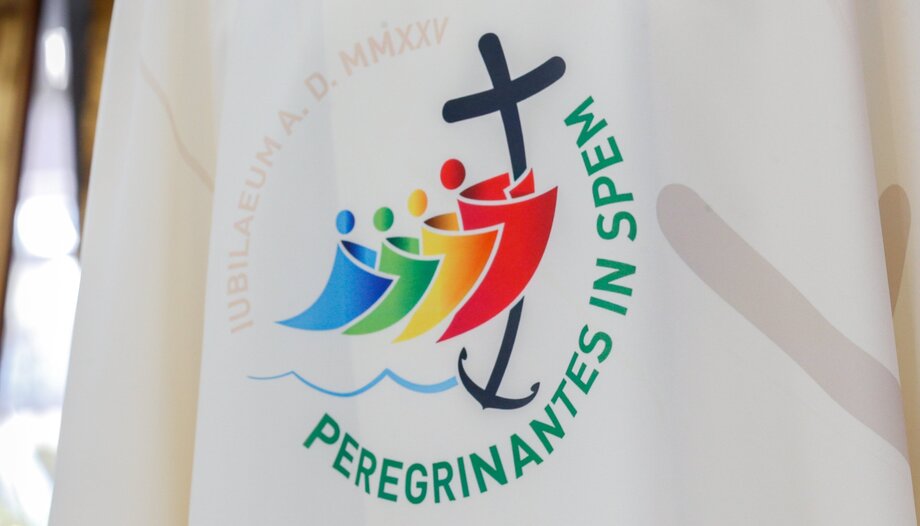Sala Stampa has published a note with the norms for obtaining indulgences during the Jubilee of 2025. In the document, the Apostolic Penitentiary "aims to motivate the spirits of the faithful to desire and nourish the pious desire to obtain the Indulgence".
The norms explain that the plenary indulgence may be obtained, for themselves or for the souls in purgatory, by "all the truly repentant faithful" who go to the sacrament of Confession, pray for the Pope's intentions and go on "holy pilgrimages", visit "the sacred places" or participate "in the works of mercy and penance".
Pilgrimages during the Jubilee
The Apostolic Penitentiary points out that the plenary indulgence can be obtained by those who go on pilgrimage "to any sacred Jubilee place". There they must participate in Holy Mass, in a celebration of the Word, in the Liturgy of the Hours, in the recitation of the Way of the Cross, the Rosary or the hymn of the "Akathistos" or in a "penitential celebration, concluding with the individual confession of the penitents".
The indulgence can also be received by those who travel to Rome and visit "at least one of the four Major Papal Basilicas: St. Peter's in the Vatican, the Most Holy Savior on the Lateran, St. Mary Major and St. Paul Outside the Walls". Likewise, those who go on pilgrimage to the Holy Land and visit the Basilicas "of the Holy Sepulchre in Jerusalem, of the Nativity in Bethlehem and of the Annunciation in Nazareth" will be able to obtain this Jubilee grace.
For those who cannot go to Rome or Jerusalem, the document also allows pilgrimages "in the cathedral church or other churches and sacred places designated by the local Ordinary".
Visiting sacred sites
Catholics may also obtain the indulgence if they visit any Jubilee site. There they have to pray and make a Eucharistic adoration, "concluding with the Our Father, the Profession of Faith in any legitimate form and invocations to Mary, Mother of God", in order to bring everyone closer to her.
Other places that can be visited are also included in the rules:
-In Rome: the Basilicas of the Holy Cross in Jerusalem, San Lorenzo al Verano and San Sebastiano, the Sanctuary of Divine Love, the churches of Santo Spirito in Sassia, San Paolo alle Tre Fontane. There are also the Christian catacombs, the churches of the jubilee roads dedicated to the "Iter Europaeum" and those dedicated to the "Women Patronesses of Europe and Doctors of the Church".
-Elsewhere: the Basilicas of St. Francis and St. Mary of the Angels in Assisi, and the Pontifical Basilicas of Loreto, Our Lady of Pompeii and St. Anthony of Padua. For their part, the Episcopal Conferences will be able to designate for this function "any minor Basilica, cathedral church, co-cathedral church, Marian shrine" or "any insigne collegiate church or shrine", as well as "national or international shrines".
Those who for various compelling reasons are unable to attend these trips (elderly or sick people, those who live in cloisters or prisoners) "will obtain the Jubilee indulgence, under the same conditions" if they join the other faithful, listen to the interventions of the Pope or the bishops and recite the Our Father "and other prayers in accordance with the aims of the Holy Year", and make the Profession of Faith "offering their sufferings or difficulties of their own life".
Works of mercy and penance
The Apostolic Penitentiary points out that the Jubilee grace can also be obtained by participating "in the Popular Missions, in spiritual exercises and other formation meetings on the texts of the Second Vatican Council and the Catechism of the Catholic Church".
Visiting those "in need or in difficulty" also allows one to obtain the plenary indulgence. On the other hand, acts of penance also serve to attain this grace through:
-Abstinence from "banal distractions" and "superfluous consumption";
-Giving alms to the poor;
-Helping religious and social works dedicated to the defense and protection of life, "abandoned children", "youth in difficulty", the elderly who are alone and "migrants";
-Volunteering.
Jubilee Indulgences and Blessings
Fulfilling the established conditions, the faithful can receive only one plenary indulgence every day of the Holy Year. However, those who use the graces of this Jubilee in favor of a soul in purgatory, "if they legitimately approach the sacrament of Communion a second time on the same day, may obtain twice on the same day the plenary indulgence, applicable only to the deceased."
On the other hand, the norms issued by the Vatican organ allow that "diocesan or eparchial bishops and those who in law are comparable to them", can impart "the Papal Blessing with attached plenary indulgence" in the main celebration of the Holy Year. To receive the indulgence, the faithful must also fulfill the conditions of confession and prayer for the Pope's intentions.
Finally, the document asks priests to be generous with their time in making the sacrament of confession available to all the faithful who come to church. In this way, many Catholics will be able to benefit from this special grace that the Church grants during the Jubilee.








